Today, I invite you on a heartwarming journey of friendship and transformation. This is a story of the deep bond that grew between a young UN human rights investigator (me) and a determined Rwandan woman, Pascaline. It all began with an unlikely encounter, and as life's challenges unfolded, they revealed the profound strength of human resilience and the beauty it can generate amidst turbulence. This story isn't just about friendship; it's also about the delicate dance of gratitude and the unexpected transformations it can bring.
In September 1995, with just a week left in my assignment with the UN human rights field mission in Rwanda, a colleague's urgent message disrupted my plans: Another assassination.
I had spent the past year investigating hundreds of cases on both sides of the genocidal conflict: in the confines of prison cells, amidst massacre sites, and within the husks of bullet-ridden buildings.
And now I was being called to another funeral, in a school compound, where nuns, dressed in their habits, gathered.
Inside a small room a wooden casket lay, draped in a white cloth with a purple embroidered cross. The air hung heavy with a mingled scent of incense, a feeble attempt to mask the stench of despair. A lone candle cast shadows.
In hushed tones, a woman recounted the chilling tale of the victim’s killing. The slain man – a man of integrity and character, a beacon of moderation in his community – had been walking close to home with his wife and a priest, when two soldiers approached them. The soldiers coldly ordered the wife to “go home and take care of your children” and the priest to also leave. As she walked away, terrified, she heard shots ringing out, as her husband was shot through his heart and temple.
The widow, Pascaline, sat in the corner of the schoolroom, her gaze fixed on the young children tugging at her skirt. She made an effort to keep her composure, but her eyes revealed the inner turmoil she was trying to conceal, with tears welling up unexpectedly, almost breaking through her composed exterior.
Days later, I paid a visit to Pascaline at her home, where she handed me a valuable collection of documents. In my discussions with individuals familiar with her husband, a consistent theme emerged highlighting his unwavering character and integrity. He was a beacon of moderation within the community, a politically centrist Hutu intellectual who had returned to Rwanda after completing his master's degree in Belgium, driven by a strong commitment to contribute to Rwanda's development through his role in the trade ministry. However, his moderate Hutu identity had already singled him out for trouble in post-genocide Rwanda, a period marked by deep-seated scars and mistrust among ethnic groups, resulting in violence against Hutus. To further complicate matters, his residence had been taken over by an army captain from the Rwandan Patriotic Front, a frequent occurrence during that tumultuous time.
Under the veil of night, Pascaline and her children embarked on a journey to find refuge in Nairobi. Little did she anticipate that the complex web of political turmoil she had just managed to escape would ensnare her within the heart of the refugee community in that city. I crossed paths with her during my return trip at the conclusion of my mission, and we maintained contact over many months while I collaborated with various human rights organizations and diplomats to seek a resolution for her predicament.
While it was a protracted and challenging process, eventually, the promise of a fresh start beckoned from across the Atlantic, and Pascaline discovered herself on a path to resettlement in the warm embrace of Canada.
At the Ottawa airport, compassionate individuals arrived, carrying suitcases filled with winter clothing and open arms. For Pascaline, this simple kindness signified more than just a material offering; it represented a newfound sanctuary. Upon settling into her new Canadian home, she shared with me, her voice resonating with a profound sense of relief, that she had enjoyed her first night of uninterrupted sleep in well over a year.
Throughout the following years, our correspondence continued, as Pascaline shared her experiences and struggles in rebuilding her life while ensuring her children received an education. She maintained a steadfast belief that I had saved her life, a notion that left me deeply uneasy, and I consistently rejected it. In my perspective, Pascaline was the resilient heroine of her own journey, propelled by an unwavering determination to safeguard her children and embark on a fresh start. Nonetheless, she remained resolute in her desire to express her gratitude somehow. After numerous communications, we tentatively agreed that I would visit her in Quebec for an extended weekend. Yet, every time it came to making concrete plans, I found myself hesitating, fearing that accepting the visit might be seen as an acknowledgment of the credit she persistently sought to bestow upon me.
However, a terminal cancer diagnosis prompted me to reevaluate my stance on accepting compliments and the caring gestures of others. This was solidified in a conversation with my son, and in late 2022, he and I set out on a journey to Canada to visit Pascaline at her home just outside Quebec.
I seized the chance to recount some of the most pertinent details of my investigative work to her now-grown children. I shared with them intricate facets of their father's life, including his eventual passing, underscoring his remarkable integrity, intelligence, and humility. Much of the information I shared was new to them. As our emotional exchange unfolded, it evoked floods of tears. One of Pascaline's children, who was on the verge of embracing parenthood, expressed how our conversation had instilled within him a profound sense of peace and closure during this pivotal moment in his life.
For Pascaline and me, my earlier ambivalence about our meeting had no place in our rekindled relationship. We had come to deeply understand and appreciate one another, transcending my previous identity as a passionate UN investigator dedicated to addressing global injustices. Adversity and moments of tragedy touch all our lives sooner or later, as they are part of the shared human experience. It is our response to these challenges that defines us. Back when my career was just beginning thirty years ago, I couldn't fathom the difficulties that Pascaline faced. However, as we reunited, it felt as though we were kindred spirits, united by the understanding that life's trials are inevitable, and it's our shared resilience in making the best of them that unites us.
In fact, in many ways Pascaline's life was now more appealing than mine. She had retired and was relishing the joys of grandmotherhood while pursuing projects to assist others in Rwanda and Burundi. Meanwhile, the likelihood of my witnessing my son's graduation or becoming a grandparent was small. This role reversal felt intuitive to me, considering that everyone encounters life's challenges. My life had been deeply enriched by witnessing Pascaline's and others' resilience in the face of adversity. Their examples had helped me find agency in my own circumstances, shaping the way I navigate the challenges that illness presents.
Cancer, undeniably formidable, fades when compared to the malevolent forces wielded by individuals and governments with malicious intent. However, both cancer and war pale beside the ability of human resilience, compassion, and rejuvenated friendship to craft meaning and beauty amidst life’s turbulence.
********
For more Rwanda photos from 1994-1995, see: https://pbase.com/kleine/rwanda94_95
Photo credits: Ben Majekodunmi, Roberto Ricci, SKA.



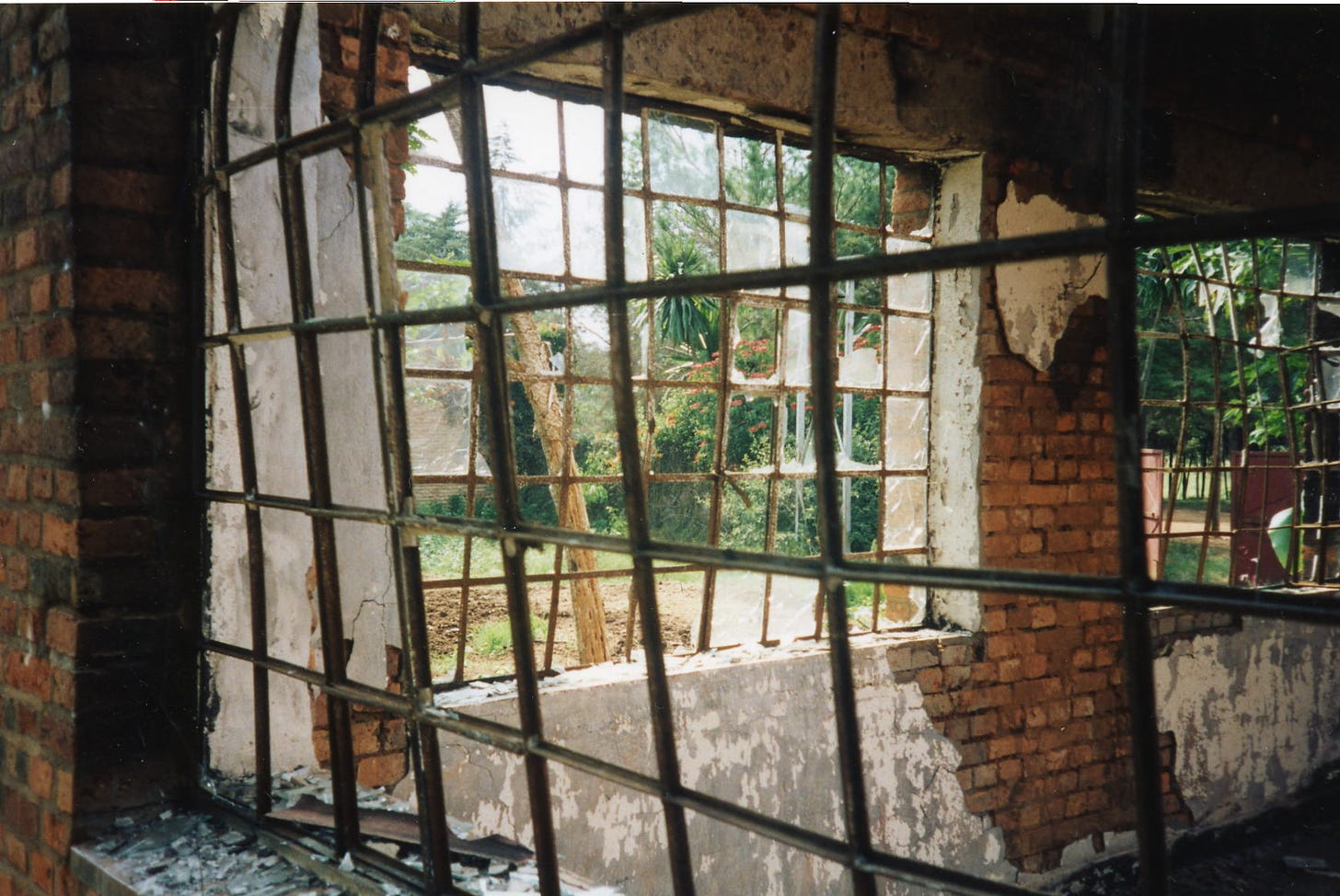
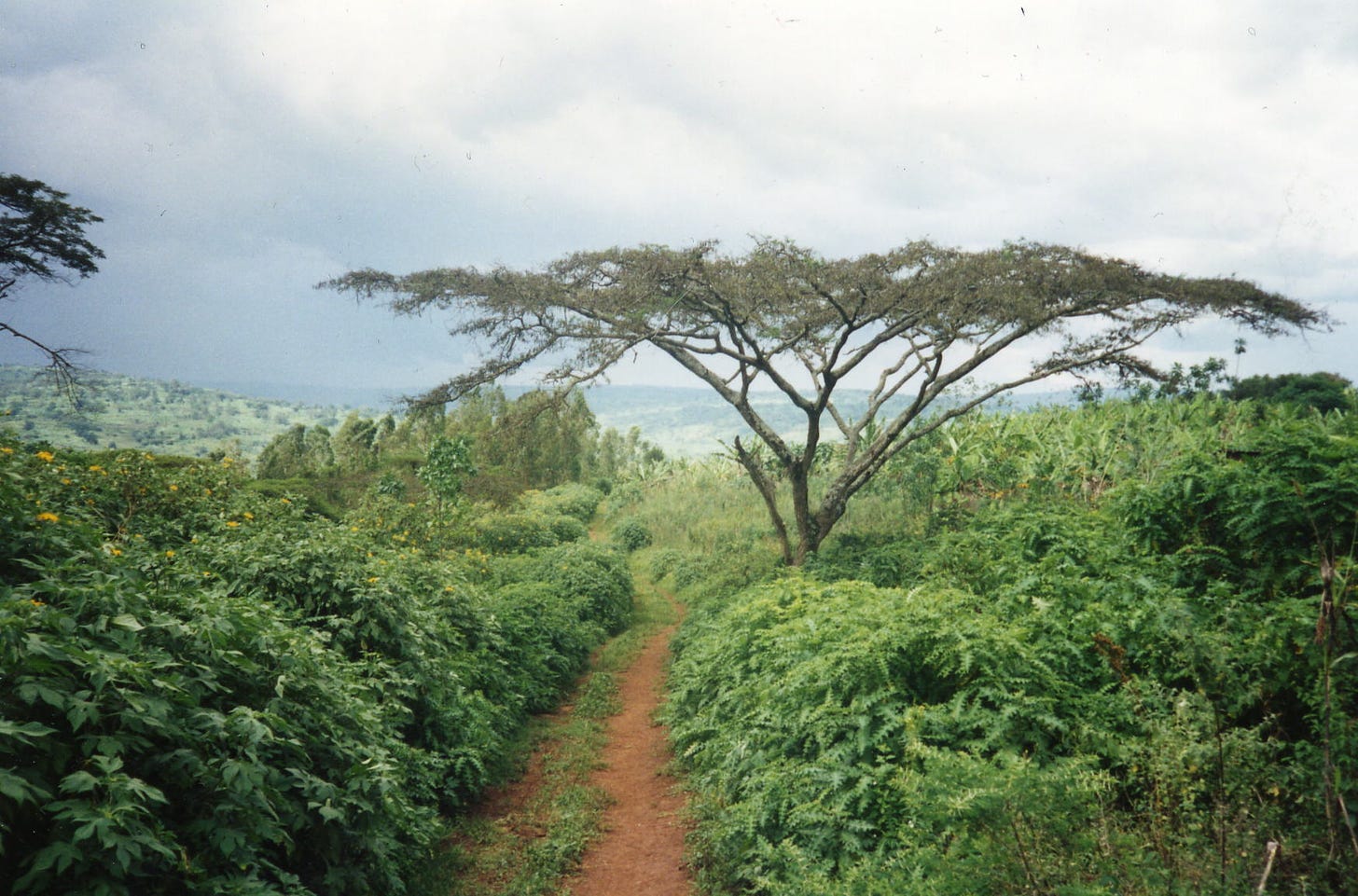
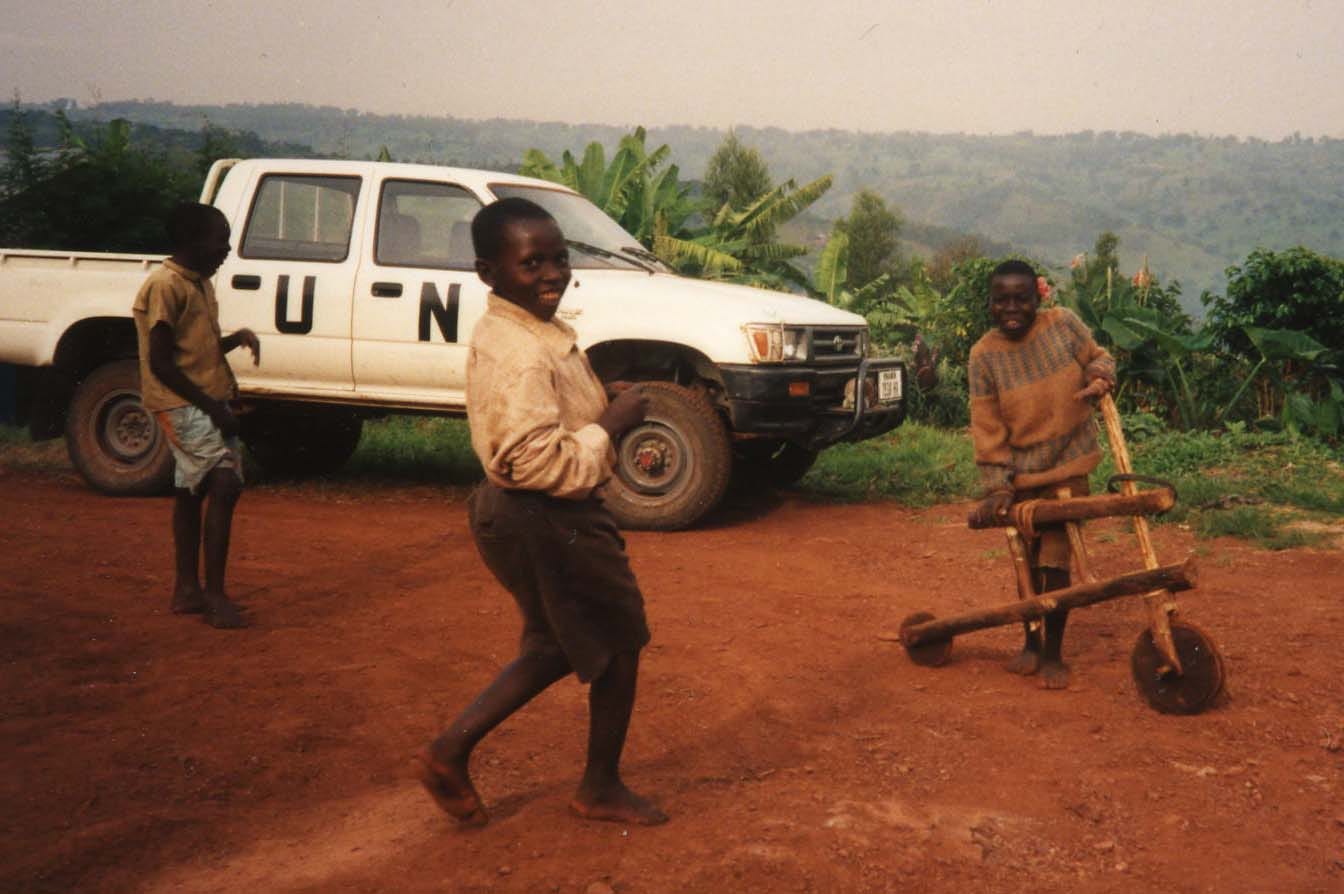

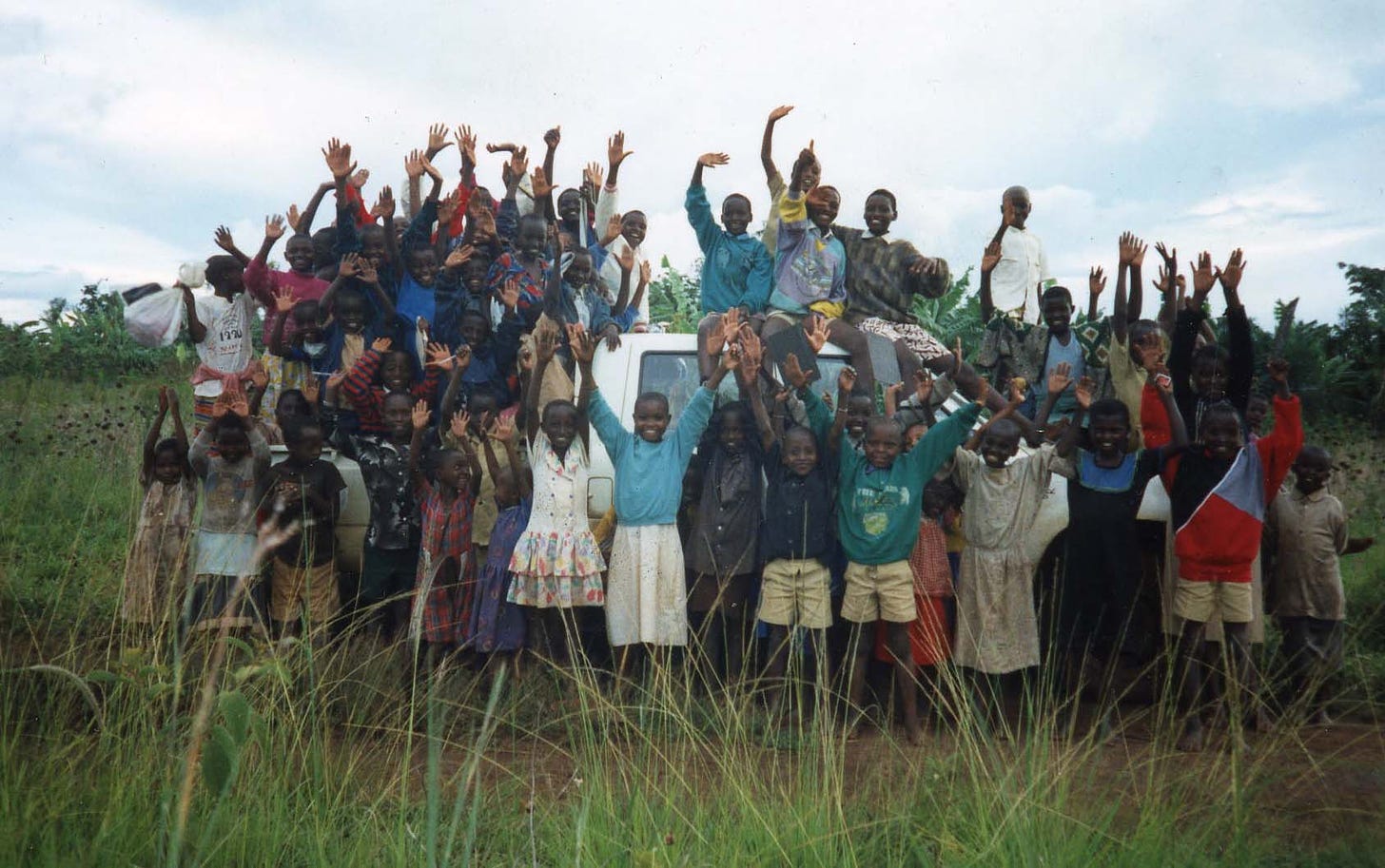
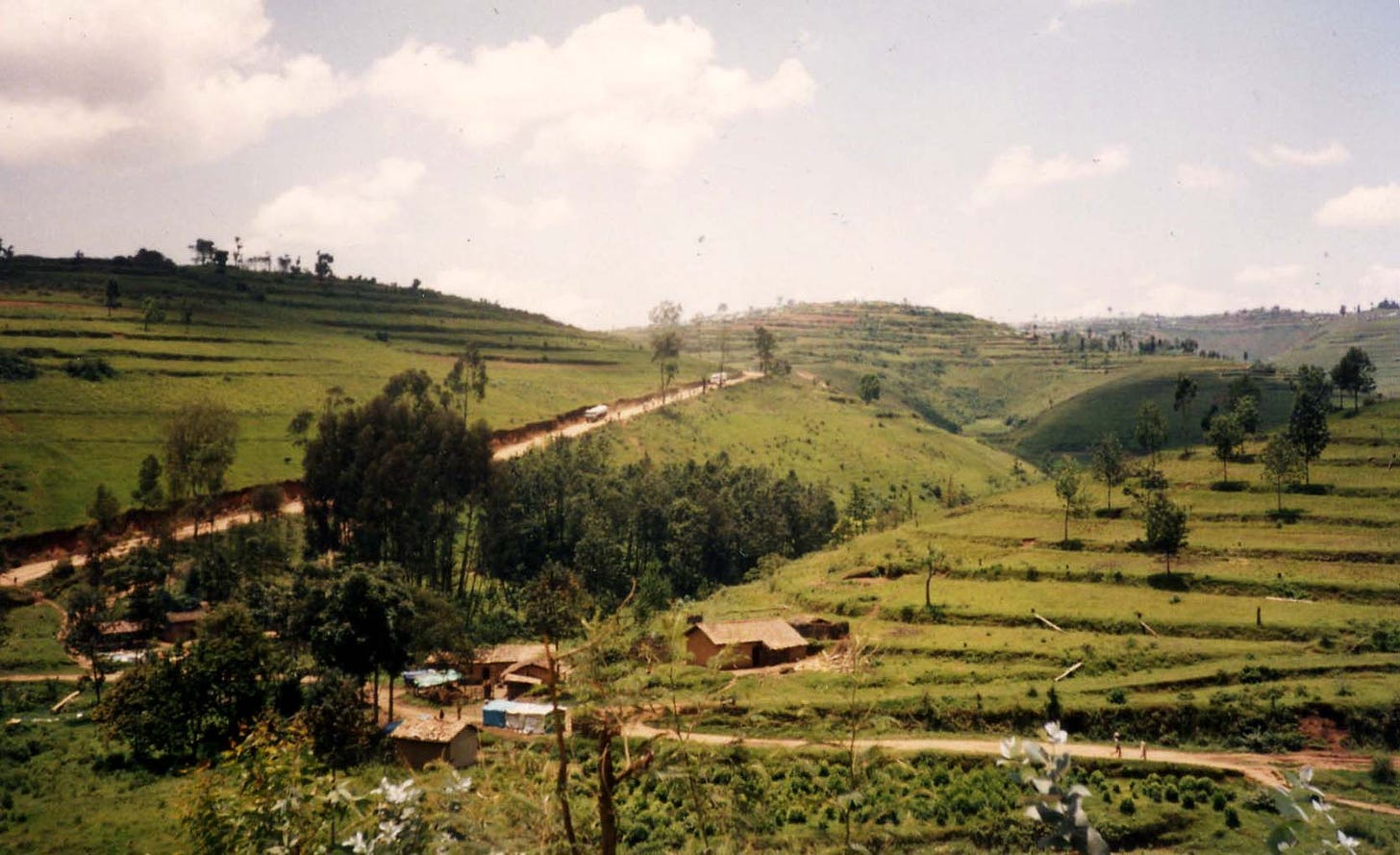
I am new to substack, thanks for accepting my interest to join. I opened and read this very well written story this morning, a first of many I am sure. I love how the author has processed her life now to that of the Rwandan woman's life from before, and how they have in some ways a kind of role reversal. Very interesting, both the work of both people in this story. Thanks for sharing.